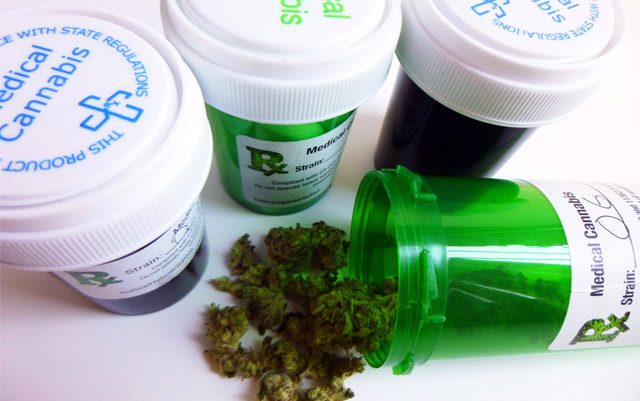Rheumatoid Arthritis (RA) is a chronic, painful autoimmune disorder that commonly affects the feet, hands, elbows, knees, wrists and ankle joints. RA occurs when our own immune system goes awry and attacks our body parts, leading to inflammation, swelling, pain and damage of affected area(s). Prolonged inflammation of the joints leads to permanent damage of surrounding cartilage and bone. The inflammation may also affect other organs, including the heart and lungs.
Some of the common symptoms of RA are morning stiffness for more than 30 minutes, joint pain with swelling, involvement of more than one joint (mostly small joints), fatigue, low-grade fever and anorexia. Untreated RA may lead to formation of rheumatoid nodules, anemia, photophobia, and inflammation of blood vessels and lungs.
The exact cause of RA pathogenesis is unknown, but it is believed to be due to combined involvement of hormonal, genetic and environmental factors.
As joint damage is permanent, early diagnosis and treatment is important to prevent disability. RA is generally diagnosed by blood work and radiological examinations. RA is being treated with conventional therapeutic drugs, such as non-steroidal anti-inflammatory drugs (NSAIDs) and oral corticosteroids, to alleviate pain and inflammation. To delay disease progression, disease modifying anti-rheumatic drugs, such as methotrexate and plaquenil, are also prescribed under close medical monitoring. However, long-term administration of these drugs could cause serious adverse events.
Endocannabinoids are naturally-occurring chemicals that modulate inflammation and the immune system without causing any adverse side effects. Employing phytocannabinoids to safely achieve immunomodulation and anti-inflammatory benefits is an ongoing scientific research effort. In experimental and human studies, cannabinoids have been shown to modulate a dysfunctional immune system and treat RA symptoms.
Clinical trials of cannabinoid-based synthetic compounds, such as HU-211 and Ajulemic acid, have been shown to be moderately effective against a variety of autoimmune disorders, including rheumatoid arthritis. These compounds act via modulation of the endocannabinoid system, and also by receptor-independent mechanisms.
As we know, inflammation and oxidative stress play a key role in the pathogenesis of RA, therefore alleviating the inflammation and scavenging the free radicals could significantly improve the treatment outcomes. When compared to THC, CBD has more advantages due to its non-psychotropic nature with anti-inflammatory and modest antioxidant properties.
Treating Rheumatoid Arthritis: Is CBD or THC Preferable?
Among several cannabinoid constituents, THC and CBD are considered to be the important cannabinoids that act hand-in-hand to treat various illnesses. THC elicits anti-nociceptive effects, including against neuropathic pain, whereas CBD and THC both exert anti-inflammatory action. CBD has been shown to delay the the progression of RA and improve clinical symptoms.
In acute and chronic inflammatory pain models, CB2 receptors have been implicated in anti-nociception more than CB1 receptors. The expression of CB2 receptors in fibroblast-like synoviocytes (FLS) in RA models has been documented by molecular biological studies. According to these studies, the expression of pro-inflammatory IL-6, matrix metalloproteinases, mRNA and CB2 receptor proteins were higher in synovial tissue and FLS in RA patients, as compared to unaffected individuals. The expression of CB2 receptors was found to be upregulated by IL-1β and TNF-α in RA joints. Synthetic CB2 receptor agonists inhibited pro-inflammatory cytokines and also matrix metalloproteinases in FLS, suggesting the pathophysiological and therapeutic role of CB2 receptors and their agonists. The anti-nociceptive action of cannabinoids is not only based on cannabinoid receptors, but also by its action on atypical receptors, such as GPR55. An experimental acute joint pain study observed that GPR55 agonists significantly reduced firing of pain-causing C-fibres, but the benefit was not influenced or altered by administration of CB1 and CB2 receptor modulators. This study clearly suggests the involvement of atypical receptors in joint nociception, and the CB receptor-independent therapeutic role of cannabinoids in the treatment of inflammatory joint pain.
Taken together, CB2 receptor-targeting CBD is the preferable choice over THC in terms of both efficacy and safety.
Cannabinoids Treat RA by Alleviating Inflammation and Pain
Anti-marijuana activists prefer to quote some review studies that are unable to see the clinical evidence to recommend cannabis as a treatment for RA. However, these studies did observe some benefits in terms of pain relief and better sleep quality. The authors of the study acknowledged that almost of the studies included for the review were highly biased due to small patient population, heterogeneity in rheumatic conditions and clinical products employed, as well as lack of comparative studies with phytocannabinoids, which can lead to limited conclusions on the effects of cannabinoids in RA patients. Hence these studies should not be considered as a valid conclusion; instead, we should look into the molecular pharmacological studies of cannabinoids.
Despite the fact that cannabis has been used for medicinal purposes for centuries, including as an analgesic, the clinical trial development has been hindered by legal tangles. To avoid these problems, it is good to investigate the non-psychoactive cannabinoid CBD, which is a potent immunomodulator and anti-inflammatory agent.
CBD has been shown to be anti-arthritic and anti-hyperalgesic by decreasing the release of PGE2, free radicals, IFN-γ, TNF-α, NO and COX activity and also via modulation of microglial density and p38 MAPK activity in the dorsal spinal cord. Suppression of these pro-inflammatory cytokines by CBD can reduce pain, edema and inflammation, and treat rheumatoid arthritis associated pain. The therapeutic action of CBD in RA studies appears to be dose-dependent, as evidenced by a bell-shaped curve, and optimally moderate doses have been found to be effective. While some studies were unable to show statistically significant results, they did show histological evidence of CBD-induced joint protection and amelioration of clinical RA.
Interestingly, some studies reported that administration of moderate doses of CBD in healthy humans resulted in elevation of plasma cortisol levels. Cortisol is anti-inflammatory and immunosuppressive in nature, which could add more teeth for the treatment of RA.
Significant and extended-duration analgesic benefit was observed in RA after use of standardized whole plant extract, with a definitive ratio and dose of THC and CBD. Suppressed pain was believed to be a central effect (brain-related) with inhibition of pro-inflammatory cytokines was observed. Improved sleep pattern can be considered as a clinical bonus, which is not due to hypnotic effect but extended pain relief.
Both THC and CBD can be used to treat RA, as both have anti-inflammatory effects. If the whole plant extract contains a moderate ratio and dose of THC, it is also desirable to treat chronic pain disorders, including arthritis. According to an experimental study, co-administration of Δ9-THC with morphine synergistically improved arthritis symptoms with lesser risk of developing tolerance. A human clinical trial that involved 58 RA patients employed 1:1 ratio of CBD:THC and compared the results with a placebo and found that both cannabinoids significantly improved the symptoms, suggesting the ‘entourage effect’. The undesirable side effects of THC may be negated by CBD, while both provide valuable therapeutic benefits without causing notable side effects.
Considering this evidence, it is clear that cannabinoids possess therapeutic potential to treat RA by eliciting potent anti-inflammatory action in the affected knee and other joint(s) linings without causing tolerance. By effectively managing pain and inflammation, rheumatoid arthritis patients can have better quality of life with improved sleep quality and better movement.
Is it More Beneficial to Use Whole Plant Cannabis or Isolated Pharmaceutical-Grade Cannabinoid Compounds?
Marijuana has been used by humans for 12,000 years for the treatment of pain, but the herb has never been pharmacologically evaluated in clinical trials until the last two decades. Ancient Chinese literature, written 4000 years ago, concluded that cannabis ‘undoes rheumatism’. Cannabis research studies justify clinical trials and pharmacologically-formulated medical cannabis use over traditional use for medicinal purposes. Clinical trials on synthetic cannabinoids could be helpful to understand the mechanism of action and pharmacology in the treatment of rheumatoid arthritis.
However, the usage and benefits of whole plants should not be shunned, considering the ‘entourage effect’ of different cannabinoids present in the whole plant. For better understanding, controlled clinical trials should be conducted to compare the benefits of whole-plant products, purified constituents and synthetic compounds.
Herbal cannabis contains more than 60 different cannabinoids, which interact with each other to provide synergistic benefits and also antagonize the side effects. Based on the available evidence, we can see that using whole plant cannabis with prescription medications may provide the best results. The blended medicinal benefits of THC and CBD may work synergistically with prescription pharmaceuticals to provide significant and extended pain relief by suppressing inflammation and preventing further destruction of bone joints.







I have RA and cannabis helps tremendously with the inflammation and pain!
In what form you are taking it? Are you consuming it by smoking or in any other form? One of my relative suffering from RA.Kindly suggest.
FORMULA
I am a 50 years old female diagnosed with Rheumatoid Arthritis 2 years ago but have had symptoms for at least 20 years. I was taking methotrexate and Cymbalta, as well as infusions of Remicade, nothing worked for me. All my pain was from my waist down and certainly not something I can stand. The only treatment that has been successful has been the taking of RA herbal remedy i purchased from Best Health herbal centre. I now wake up every morning without pain. I have been pain-free period for more than 4 months. I have regular blood tests and do not experience any of the side effects from taking the herbal remedy. Thank God this works for me. I feel great!.
I too am a 50 year old female, diagnosed 2 years ago. I am also on methotrexate, Cymbalta, Plaquenal, and Celebrex. I would love to know more of what you take, in what form, etc …
I was diagnosed of RA in 2009. I was put on Naprosyn and after some time i didn’t feel any different, so i started on a Natural Rheumatoid Arthritis Formula treatment protocol from RICH HERBS FOUNDATION (ww w. richherbsfoundation. c om), the treatment made a great difference for me, it effectively treated my Rheumatoid Arthritis and symptoms. The swellings, stiffness, fatigue and joint/muscle/body pains has subsided, I feel better overall than i have felt in years.